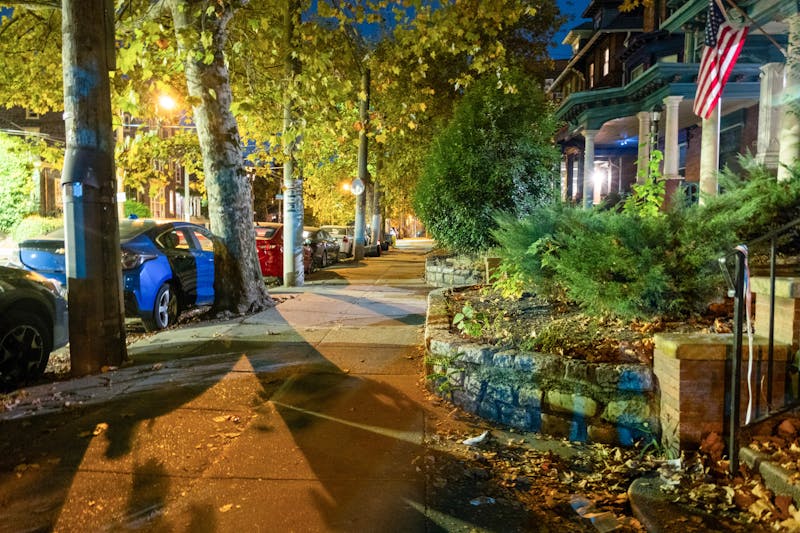But after three classes of undergraduates have undergone the Labor Day diversity education programs, where are we? Were the tense and acrid debates, the protests, the walk-outs by minority student leaders of three years ago worth the final result? Rather than the fiery debates that marked the University Council meetings before the programs' implementation, the campus community has opted to accept or ignore the programs, simply viewing them as part of freshman orientation. It's not that opponents of diversity education do not still exist. It's just that there's not much that they have to fight. Today we see a campus, once divided on the subject of diversifying Locust Walk, now treating it as a non-issue. We see a campus where issues of factual correctness are discarded and accused of forwarding agendas of political correctness. Similarly, diversity education has fallen by the wayside. Discussion on guidelines for behavior -- argued for so sincerely and diligently by those who have been targets of attacks -- is seen as suspect and an attempt at indoctrination. Follow-up programs in the freshman residence houses are often sparsely-attended, poorly-planned, or consist merely of a lecture and a question and answer period, according to several diversity program participants. But perhaps the biggest obstacle faced by the diversity education programs, is their labeling as "mandatory but with no negative sanctions" by the administration. In other words, optional. If the administration saw diversity education as a valuable method to achieve a goal that it touts as crucially important, why did they shoot it in the foot from the beginning? · "If the University were serious about diversity, it would make the programs mandatory," United Minorities Council President You-Lee Kim said to me the other day. Kim also characterized the administration's policies and actions on diversifying Locust Walk as far from ideal, saying that "The solutions are not the optimal or best or most equitable." Interestingly, that pretty much sums up the diversity education programs as well. As implemented, diversity education is just a faltering baby step by the administration that translates into very little. Although many students said they derived a better sense of the diversity at Penn through the programs, many others said their experiences were compromised by others' poor attendance or ineffective facilitators. Some students said they did not remember much from the programs. And although Black Student League President Jessica Dixon said she believes the full effects of the program cannot be assessed until four years' worth of freshmen have undergone the program, it still appears that the campus continues to reflect intolerance towards different points of view. "The campus as a whole isn't anywhere," said Robin Wood, a member of the Gay, Lesbian, Bisexual Speaker's Bureau. To Wood, diversity education has not made much progress in eliciting greater understanding or discussion from the student body as a whole. And Wood is one of several minority students who believe that the diversity education programs are only marginally better than not having anything. · But diversity education programs -- in some more far-reaching form -- could offer students more than just a lecture. Truly mandatory programs -- perhaps in the form of a class where attendance is taken and required for graduation -- could foster a sense of commitment from the campus to broaden their horizons to people of different backgrounds. It will also lend the diversity education program legitimacy, a trait that is miserably lacking as a result of the administration's half-measures. Also, facilitators should undergo better training so that they encourage discussion of all points of view, including those some would call offensive. Unfortunately, some students felt they were not permitted to freely discuss what they really thought in the seminars. They added that the facilitators almost required them to follow certain philosophies and to change those that did not fit the mold. The most important contribution that diversity education seminars can make -- and should make -- to campus is to open lines of communication. The idea of the program should be to encourage discussion, not stifle it. Only through open discussion will true understanding be reached. A dialogue starts and students are in a mindset of listening. This exchange of ideas, considered so crucial to the process of learning, can bond freshmen together. This genuine one-to-one interaction can do more to open people's eyes and increase tolerance to different perspectives than any amount of speeches. One day is not going to change the way people think. And it shouldn't necessarily. But that one day should change the way people listen. Helen Jung is a senior English major from Youngstown, Ohio and executive editor of The Daily Pennsylvanian. No Tagbacks appears alternate Tuesdays.
The Daily Pennsylvanian is an independent, student-run newspaper. Please consider making a donation to support the coverage that shapes the University. Your generosity ensures a future of strong journalism at Penn.
DonatePlease note All comments are eligible for publication in The Daily Pennsylvanian.







